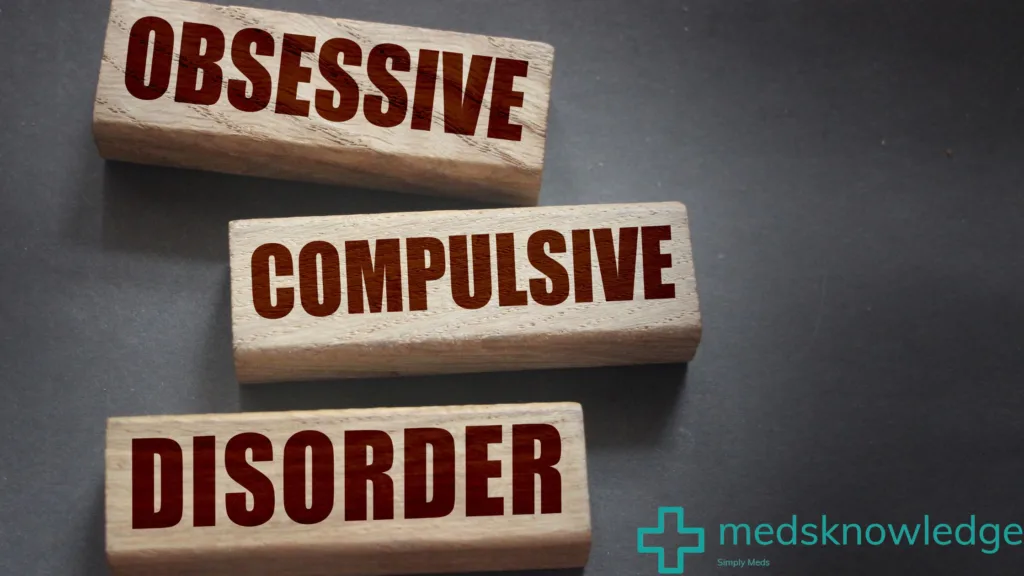Introduction Managing Obsessive-Compulsive Disorder (OCD)
Obsessive-Compulsive Disorder (OCD) is a complex mental health condition characterized by intrusive thoughts (obsessions) and repetitive behaviors (compulsions). These symptoms often intertwine, creating a tapestry of mental challenges that significantly impact individuals’ daily lives. The disorder’s perplexity lies in its ability to manifest uniquely in each person, making it a multifaceted condition that demands a nuanced understanding.
Signs and Symptoms of Managing Obsessive-Compulsive Disorder (OCD)
Obsessions
- Fear of contamination: A prevailing concern about germs or dirt.
- Need for order: An overwhelming desire for symmetry and precision.
Compulsions
- Washing: Excessive cleaning, is often linked to contamination fears.
- Checking: Repeatedly verifying things like locks or appliances.
In understanding OCD, it’s crucial to recognize the sheer variety and intensity of these symptoms. They often extend beyond the common stereotypes, painting a picture of a disorder that is as diverse as it is debilitating.
For more in-depth information, the Obsessive-Compulsive Foundation offers extensive resources on OCD symptoms and management strategies. Additionally, the OCD Help website provides valuable support and guidance for those affected by OCD.
Causes and Risk Factors of ocd
The intricate web of Obsessive-Compulsive Disorder (OCD) causation is still being unraveled by scientists. Key theories include:
- Biological Factors: Alterations in brain chemistry and function.
- Genetic Influences: A hereditary component, although no specific genes have been conclusively identified.
- Environmental Triggers: Stressful life events acting as catalysts.
Moreover, risk factors such as family history and traumatic experiences play a pivotal role in the disorder’s onset. For a deeper dive into these complexities, the National Institute of Mental Health (NIMH) – OCD offers comprehensive insights.
Complications and Related Conditions
OCD’s ripple effects extend far beyond its immediate symptoms:
- Interpersonal Relationships: Strain on friendships and family dynamics.
- Quality of Life: Severe disruptions in daily functioning and overall well-being.
Additionally, OCD often coexists with other mental health disorders, like anxiety and depression, creating a layered challenge for treatment and management. For further understanding of these interconnections, OCD Awareness provides valuable resources.
Managing Managing Obsessive-Compulsive Disorder (OCD)
Diagnosis and Assessment
Diagnosing Obsessive-Compulsive Disorder (OCD) is a process that intricately involves both patient-reported symptoms and professional assessment. Medical professionals play a crucial role in this process, utilizing tools like the Yale-Brown Obsessive Compulsive Scale to measure symptom severity. This comprehensive approach ensures a diagnosis that captures the disorder’s complexity. For more on this, visit the OCD Awareness website.
Treatment and Management for Managing Obsessive-Compulsive Disorder (OCD)
Effective management of OCD includes a spectrum of treatment options:
- Medication: Primarily serotonin reuptake inhibitors (SRIs).
- Psychotherapy: Cognitive Behavioral Therapy (CBT) being the most prominent.
Each treatment plan is tailored to individual needs, with the effectiveness of these approaches often varying from person to person. The significance of early intervention cannot be overstated – it is essential in halting the progression of symptoms and improving overall outcomes. In-depth resources and support can be found at the Obsessive-Compulsive Foundation.
Living with Managing Obsessive-Compulsive Disorder (OCD)
Living with Obsessive-Compulsive Disorder (OCD) presents a unique set of challenges:
- Navigating daily routines while managing compulsions and obsessions.
- Balancing personal and professional responsibilities amid the disorder’s demands.
Effective coping strategies include:
- Engaging in structured therapy.
- Building robust support networks.
For further guidance, OCD Help is an invaluable resource.
Future Directions and Research
The landscape of OCD research is ever-evolving, focusing on:
- Understanding the neurobiological underpinnings of OCD.
- Developing innovative therapeutic approaches.
Potential advancements include:
- Tailored medication regimens.
- Novel psychotherapeutic techniques.
To explore the latest in OCD research, the National Institute of Mental Health (NIMH) – OCD provides up-to-date information.
FAQ Section
Addressing frequently asked questions from the Brain & Behavior Research Foundation FAQ page:
- What is OCD? A complex anxiety disorder involving unwanted obsessions and compulsions.
- How is OCD diagnosed? Through symptom assessment by mental health professionals.
- Can OCD be cured? While there’s no cure, effective treatments are available.
- Is OCD inherited? Genetics play a role, alongside environmental factors.
Conclusion
In conclusion, Obsessive-Compulsive Disorder (OCD) is a multifaceted condition that impacts individuals in various, often profound, ways. Understanding its complexities – from the nuances of diagnosis and treatment to the daily realities of living with OCD – is essential. Embracing a holistic approach, inclusive of both medical and emotional support systems, can significantly improve life quality for those affected. Continual research and evolving treatments offer hope and new possibilities. For ongoing support and information, resources like OCD Awareness remain invaluable.
Navigating the journey with OCD requires patience, understanding, and a commitment to comprehensive care and support.
To learn about more Diseases kindly visit https://medsknowledge.com/

